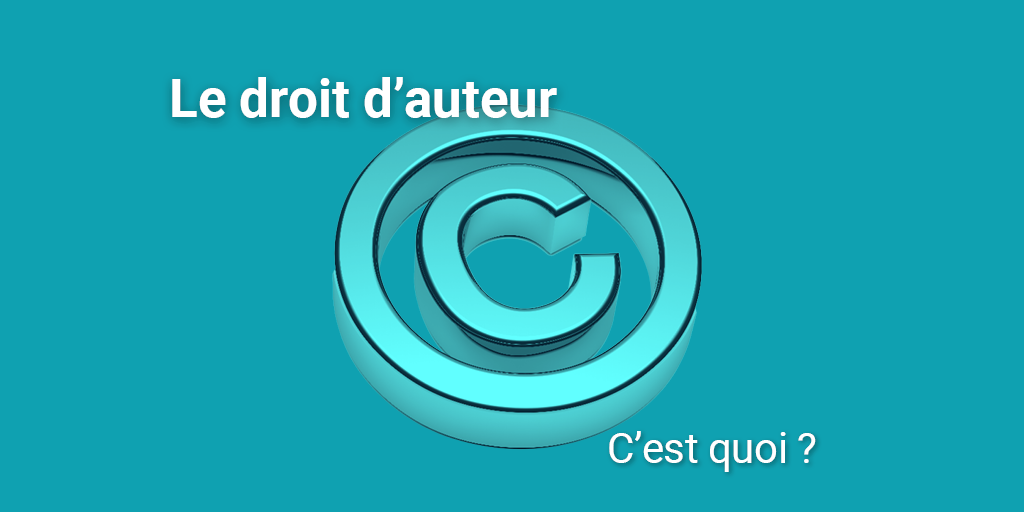
Copyright, royalties, authors’ rights, copyright owners, rightsholders, all rights reserved… so many terms! How are all these rights related? Is copyright a right like any other?
In this article, we explain the concepts of copyright, economic rights and moral rights.
What do they refer to?
As a legal specialization, copyright is considered relatively complex because it encompasses a range of specific legal concepts and principles.
Copyright falls within the scope of intellectual property (IP), which concerns the right to protect content created by human minds.
While IP includes other specialized fields, such as trademarks and patents, copyright applies specifically to literary works, which in this case refers to writing in general or authorship of books, plays, films and music.
Copyright also protects other types of creative content such as software.
And, of course, copyright applies to any of the fine arts: drawing, painting, photography, video-making and sculpture.
Defining copyright
The word “copyright” is sometimes used broadly to describe a field of law. That’s how it’s used in the title of Canada’s Copyright Act.
More often, it’s used to refer to ownership of a copyright. In that case, an individual becomes the owner of the copyright in a specific creative work and is designated as the copyright owner or rightsholder. Usually that person created the content. If the copyright has been assigned to someone else, the assignee would become the copyright owner.
At its most basic level, the word “copyright” is used simply to indicate that a document is protected by the Copyright Act and can’t be reproduced without permission from the rightsholder.
Copyright royalties
Royalties are amounts paid to authors or other copyright owners for using their creative content. The term’s origin goes back many centuries when royal rights were granted by a sovereign.
A writer, for example, would be entitled to royalties if an excerpt from their book was published in a periodical.
What are authors’ rights?
In general, authors’ rights refer to all the rights that creators have over their works. There are multiple rights.
Under the Copyright Act, authors are granted two types of exclusive, automatic rights: economic rights and moral rights.
Economic rights (sometimes called patrimonial rights) allow creators to make full use of their content (produce, reproduce, play, perform, etc.) or authorize a third party to use that content by setting the terms and conditions, especially for financial compensation.
Moral rights protect creators’ non-economic interests.
Economic rights
Economic rights give copyright owners the exclusive power to take certain actions concerning their content as well as authorize one or more third parties to take those actions.
Economic rights give authors a monopoly on the use of their content, regardless of what form it takes. It is an exclusive right that allows authors to prohibit any infringement of their works. If they wish, they have the right to prohibit the use or application of their content. Conversely, they have the right to use the content in any way they want and to authorize others to do so. [Translation]
— Savoir juridique, Qu’est-ce que le droit patrimonial ?
It’s up to copyright owners to decide how their content is used. They can therefore determine the territory, timeframe, amount payable (usually as royalties) and any other conditions relating to how their works will be used.
This category of rights comprises various protected rights:
Reproduction — For example, reproducing or copying the work may not be allowed by the author, even if it’s not mentioned in the actual document.
Public performance — Plays, for example.
Recording — Songs, for example.
Distribution — Any type of content.
Translation into other languages or adaptation — For example, creating a TV script based on a literary work.
Moral rights
Moral rights concern the non-economic aspects of copyright and are subdivided into various rights allowing authors to ensure the integrity of their content and have their authorship status recognized.
Unlike economic rights, moral rights cannot be assigned or sold to third parties.
Attribution (or authorship or paternity) — Authors have the exclusive authority to associate their name with their works; they can also choose to remain anonymous or use a pseudonym.
In concrete terms, even when distribution of part of a work has been authorized, it’s essential to name the author, whether the work is text-based, an image, a song, etc. It’s also good practice to add a link to the content creator’s site, especially if that’s where you found the content. Be sure to obtain written permission for your specific use of the work.
Integrity of the work — You’re not allowed to modify a work without the creator’s permission. There’s a permanent link between the content and its creator; this right protects the creator’s honour and reputation.
Association — You have to obtain the author’s permission before associating their creative content with a product, cause, service or institution. Any unwanted association could have an impact on the artist’s reputation.





